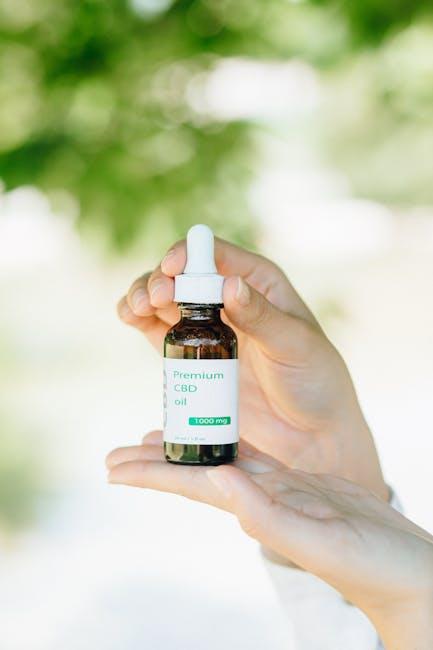In the vibrant world of childhood, where growth spurts are as unpredictable as the next adventure, ensuring that young explorers receive the right nutrients can feel like navigating a maze. As parents and caregivers, we are entrusted with the task of nurturing these budding lives, ensuring they have the tools needed to flourish. Vitamins and supplements, often cloaked in colorful bottles and promises, present both an opportunity and a conundrum. How does one discern which of these offerings truly benefit our children and which are merely shiny distractions? In this article, we embark on a journey to unravel the mystery of choosing the right vitamins and supplements for children. We will explore the essential factors to consider, the science behind the labels, and the subtle art of balancing nutrition with nature’s bounty. Whether you are a seasoned navigator of nutritional aisles or just beginning your voyage, this guide aims to illuminate the path toward informed, confident choices for your child’s health and well-being.
Understanding Childrens Nutritional Needs
Choosing the right vitamins and supplements for children can often feel like navigating a maze, with a myriad of options each claiming to be the best. It is essential to recognize that children’s nutritional needs vary based on their age, activity level, and dietary intake. Before adding any supplement to your child’s diet, it is crucial to ensure that their primary nutrition comes from a balanced diet rich in fruits, vegetables, whole grains, and proteins. Supplements should serve as an aid, not a replacement for nutritious food.
When considering supplements, look for those that address specific dietary gaps or support developmental milestones. Some key nutrients to focus on include:
- Vitamin D: Vital for bone growth and immune function, especially in children with limited sun exposure.
- Omega-3 Fatty Acids: Important for brain development and cognitive function.
- Iron: Essential for energy and growth, particularly in toddlers and teens.
- Calcium: Necessary for developing strong bones and teeth.
Opt for supplements that are free from artificial colors and flavors, and consider consulting with a healthcare provider to tailor choices to your child’s unique needs. This approach ensures that your child receives the right balance of nutrients to thrive.

Decoding Supplement Labels and Ingredients
Understanding the information presented on supplement labels can feel like deciphering a secret code. However, learning to navigate these labels is crucial when selecting the right vitamins and supplements for your child. Start by examining the Supplement Facts panel, which provides details about serving size, nutrient amounts, and daily value percentages. This section will help you assess whether the product meets your child’s nutritional needs.
Be on the lookout for additional ingredients that may not be essential to your child’s health. These can include fillers, binders, or artificial colors and flavors. Here are some key points to consider:
- Active Ingredients: Ensure these are in line with what your child requires.
- Inactive Ingredients: Be cautious of unnecessary additives that could trigger allergies or sensitivities.
- Certification Seals: Look for seals from reputable organizations that verify the product’s quality and purity.
By focusing on these elements, you can make informed decisions, ensuring your child receives safe and effective supplements tailored to their unique needs.

Consulting Healthcare Professionals for Guidance
When it comes to choosing the right vitamins and supplements for children, consulting healthcare professionals can provide invaluable guidance tailored to your child’s unique needs. These experts possess the knowledge and expertise to evaluate nutritional gaps, recommend appropriate products, and ensure that any supplements align with your child’s health profile. Collaborating with a healthcare professional can help avoid potential interactions with medications or pre-existing conditions, ensuring a safe and effective supplementation plan.
- Individualized Assessment: Professionals can conduct comprehensive assessments to determine specific nutritional deficiencies.
- Safe Dosage Recommendations: Guidance on age-appropriate dosages prevents the risk of over-supplementation.
- Monitoring and Adjustments: Regular consultations allow for monitoring progress and making necessary adjustments over time.

Ensuring Safety and Efficacy in Childrens Supplements
When it comes to selecting vitamins and supplements for children, ensuring both safety and efficacy is paramount. Parents should look for products that have been rigorously tested and verified by third-party organizations. This guarantees that the supplements contain exactly what is listed on the label without harmful contaminants. Choose brands that prioritize transparency and have a history of compliance with safety standards. Additionally, consider the age-appropriate formulations to avoid any potential overdose or adverse reactions.
- Check for certifications such as USP or NSF on the packaging.
- Consult with a pediatrician before introducing any new supplement to your child’s diet.
- Research the manufacturer’s reputation and read reviews from other parents.
- Be cautious of supplements with artificial colors and sweeteners.
By taking these steps, you can help ensure that the supplements you choose are both safe and effective, supporting your child’s health and well-being.








